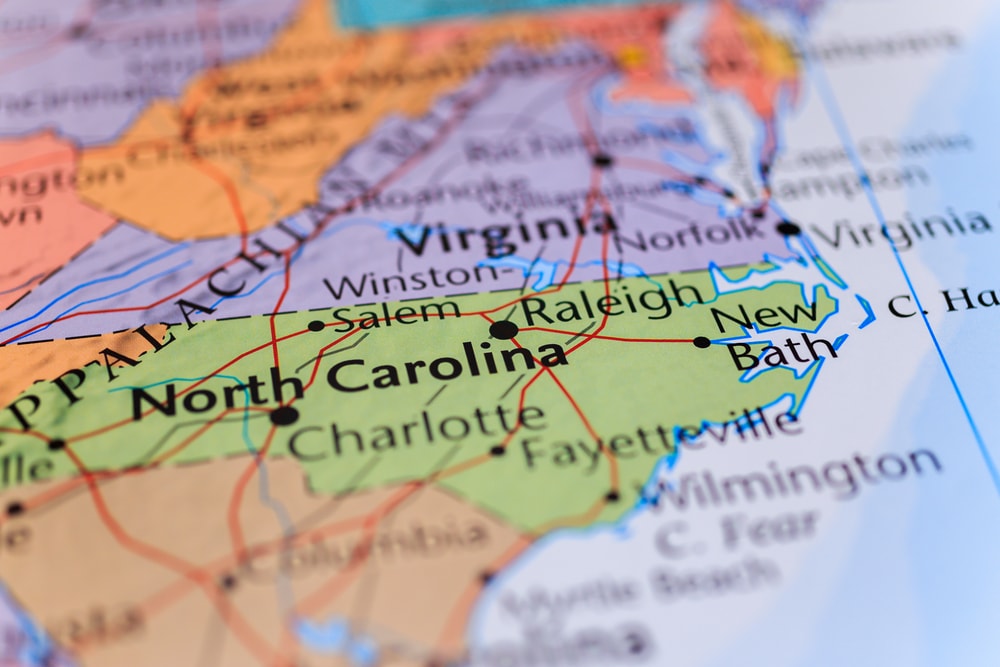The residents of North Carolina are no stranger to drug and alcohol problems. In 2017, more than 83,000 people were admitted to substance abuse treatment centers in the state, and this number continues to rise.
Like other areas of the country, North Carolina has seen huge impacts from the opioid epidemic. But other problems, such as alcohol and marijuana abuse, have been prevalent in the area for decades and are woven into the culture and history of the state.
Here are the top five drugs abused in North Carolina:
#1: Prescription Opioids
North Carolina has been particularly hard-hit by the nationwide opioid epidemic. In fact, four of the nation’s 25 cities that have the highest opioid abuse rates are in North Carolina:
Willingham, NC tops the list – with 11.6% of the city’s population suffering from opioid abuse. That’s more than one out of every ten people!
Furthermore, many of the nation’s cities with the highest percentages of opioid prescriptions being abused are found in NC:
Some other shocking stats about prescription opioid abuse in North Carolina are:
- 72 opioid prescriptions were written per 100 residents in North Carolina in 2017. The national rate at the time was 58.7.
- Despite the high rates of abuse, the number of overdose deaths from these drugs has not changed much in the past several years.
- The DEA has reported saying that abusing prescription opioids often leads to heroin abuse.
#2: Heroin
Unsurprisingly, North Carolina has problems with several types of opioids – not just prescription drugs. Opioid addicts commonly use heroin interchangeably with other drugs. Heroin is a powerful opioid that commonly results in overdose.
Check out these unbelievable stats about heroin abuse in North Carolina:
- Heroin-involved deaths rose from 189 in 2013 to 537 in 2017 – an increase of 348 deaths in only four years.
- More than 10,600 people were admitted to treatment in the state in 2017 due to heroin abuse.
#3: Fentanyl
Fentanyl is an extremely potent synthetic opioid. Unfortunately, it is responsible for many overdoses and is sought out by opioid abusers who start with less potent drugs. Furthermore, fentanyl is commonly added to drugs sold on the street – resulting in a huge overdose danger.
Consider these facts about fentanyl abuse in North Carolina:
- Deaths from synthetic opioids (excluding methadone) rose from 116 in 2013 to 1285 in 2017 in North Carolina:
That’s an increase of more than 1,000% in only four years. Fentanyl is mainly to blame for this increase.
- Fentanyl and heroin were responsible for 75 percent of the total opioid deaths in the state in 2019.
#4: Alcohol
Although alcohol is not an illicit drug, it is one of the most commonly abused substances in North Carolina. Statewide alcohol abuse is likely worse than the statistics show, as far less alcoholics seek treatment for their problem than abusers of other drugs.
Still, the alcohol abuse stats in NC can give you an idea of just how widespread problematic drinking is in the state:
- In a recent survey, more than 21 percent of people reported having engaged in binge drinking in the month prior.
- Over 44 percent reported drinking alcohol in the previous month.
- More than 20,000 of the state’s 83,744 substance abuse treatment admissions listed alcohol as a reason for seeking treatment.
#5: Marijuana
Marijuana is a drug that is overlooked as most people do not see it as being addictive. Indeed, marijuana does not cause physical dependence, but it can be very habit-forming and have a serious negative impact on the lives of those who use it.
- More people listed marijuana as their primary reason for seeking treatment than alcohol or heroin in North Carolina in 2017.
- One study found that people aged 18-25 in North Carolina were most likely to be trying marijuana for the first time.
Get Treatment for Substance Abuse in North Carolina
Don’t let your substance abuse problems go from bad to worse. There are plenty of options on Rehab Adviser when it comes to drug treatment in North Carolina.

